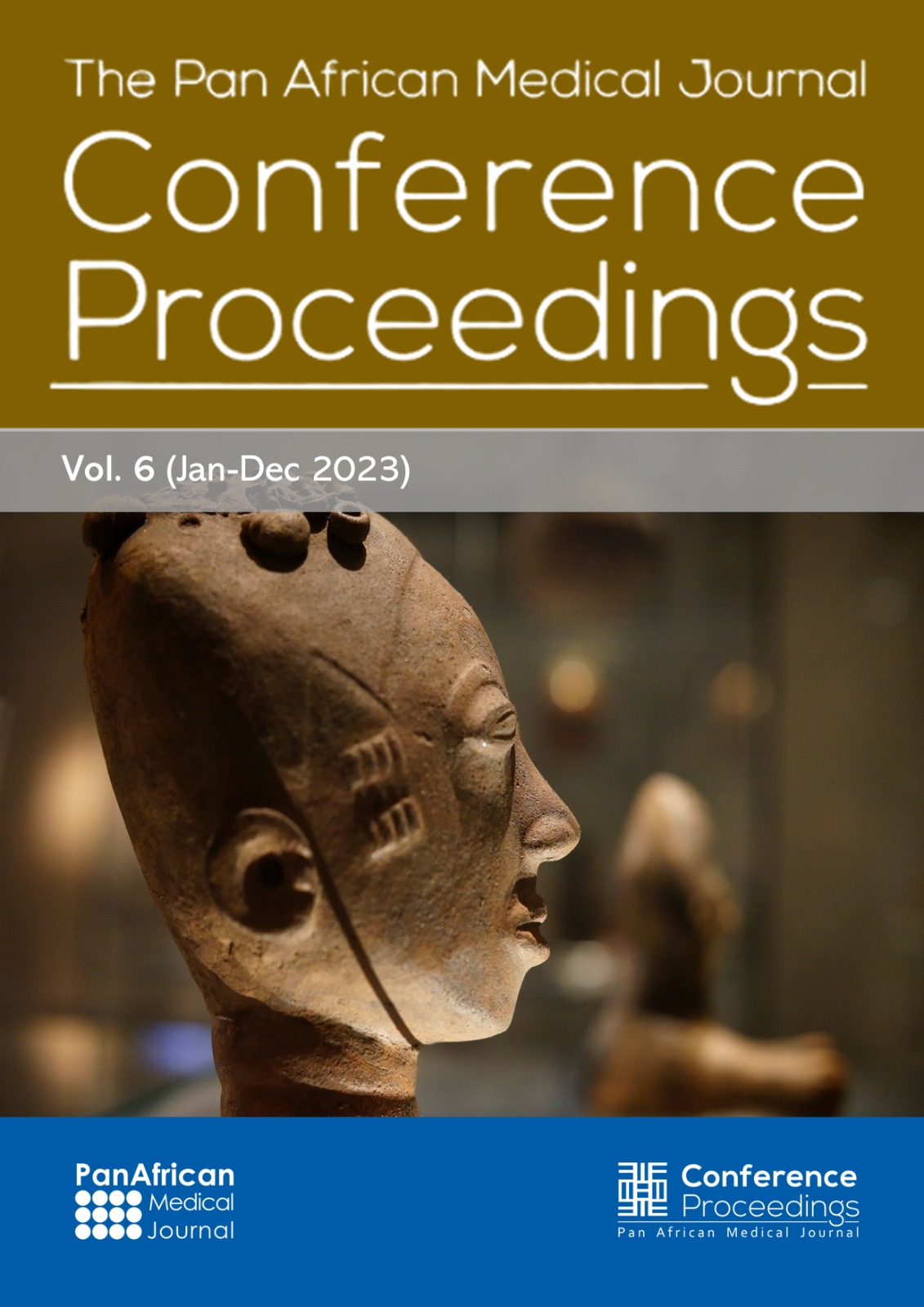Conference abstract
Emergence of rabies in West Africa forum
Pan African Medical Journal - Conference Proceedings. 2017:5(1).13
Dec 2017.
doi: 10.11604/pamj-cp.2017.5.1.518
Archived on: 13 Dec 2017
Contact the corresponding author
Keywords: One-health, epidemiological data, rabies, record keeping
Abstract
Emergence of rabies in West Africa forum
Albert Ogunkoya1,&
1Department of Veterinary Medicine, Faculty of Veterinary Medicine, Ahmadu Bello University, Zaria, Kaduna State, Nigeria
&Corresponding author
Albert Ogunkoya, Department of Veterinary Medicine, Faculty of Veterinary Medicine, Ahmadu Bello University, Zaria, Nigeria
Introduction: between 1980 and early 1990s, Rabies in the Americas (RITA) organization was established with a common interest in advancing the knowledge, prevention and control of rabies. Its goal was to "route out rabies in the Americas". RITA vaccinated about four million dogs annually; strengthened surveillance and data generation; developed new diagnostic technologies; acquired more understanding of local dog population; strengthened professional adjuncts, employed "One-Health" concept; attained dog rabies freedom in 19 of 21 capital cities in Latin America, with 90% decline in human deaths due to rabies.
Methods: in response to suggestions from RITA members, the Society for Rabies in West Africa (RIWA) emerged, focusing on replicating RITA model activities in West Africa. The Nigerian Federal Ministry of Health and the University of Ibadan Center for Control and Prevention of Zoonoses, Ibadan, Nigeria sponsored the inaugural conference of RIWA between 4th and 7th December 2012. About 300 participants from Ghana, Liberia, Mali, Nigeria, Sierra Leone, the United States and West Indies registered.
Results: twenty-five scientific papers were presented, with focus on rabies as a "One-Health" and trans-boundary disease. Participants included epidemiologists, physicians, veterinarians, laboratory technologists, pharmacists, sociologists, nurses, indigenous knowledge experts and postgraduate students in human/animal disease surveillance programs. The inaugural RIWA conference made a cross-cutting observation that the sub-regionís inadequate rabies records were due to sub-optimal surveillance.
Conclusion: the conference concluded that rabies surveillance was critically neglected among member countries in West Africa. Thus, there is need to optimize rabies surveillance activities and record keeping to encourage rabies prioritization for elimination.








